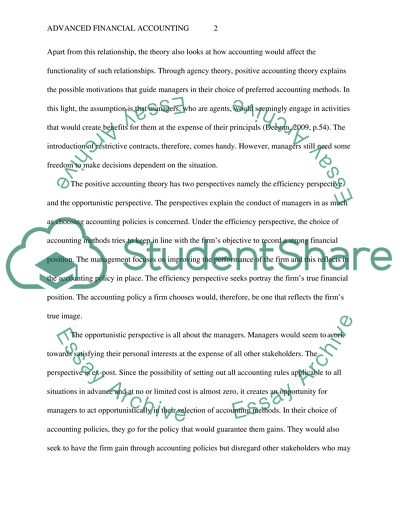Cite this document
(Positive Accounting Theory Essay Example | Topics and Well Written Essays - 1500 words, n.d.)
Positive Accounting Theory Essay Example | Topics and Well Written Essays - 1500 words. Retrieved from https://studentshare.org/finance-accounting/1693198-advanced-financial-accounting
Positive Accounting Theory Essay Example | Topics and Well Written Essays - 1500 words. Retrieved from https://studentshare.org/finance-accounting/1693198-advanced-financial-accounting
(Positive Accounting Theory Essay Example | Topics and Well Written Essays - 1500 Words)
Positive Accounting Theory Essay Example | Topics and Well Written Essays - 1500 Words. https://studentshare.org/finance-accounting/1693198-advanced-financial-accounting.
Positive Accounting Theory Essay Example | Topics and Well Written Essays - 1500 Words. https://studentshare.org/finance-accounting/1693198-advanced-financial-accounting.
“Positive Accounting Theory Essay Example | Topics and Well Written Essays - 1500 Words”, n.d. https://studentshare.org/finance-accounting/1693198-advanced-financial-accounting.


